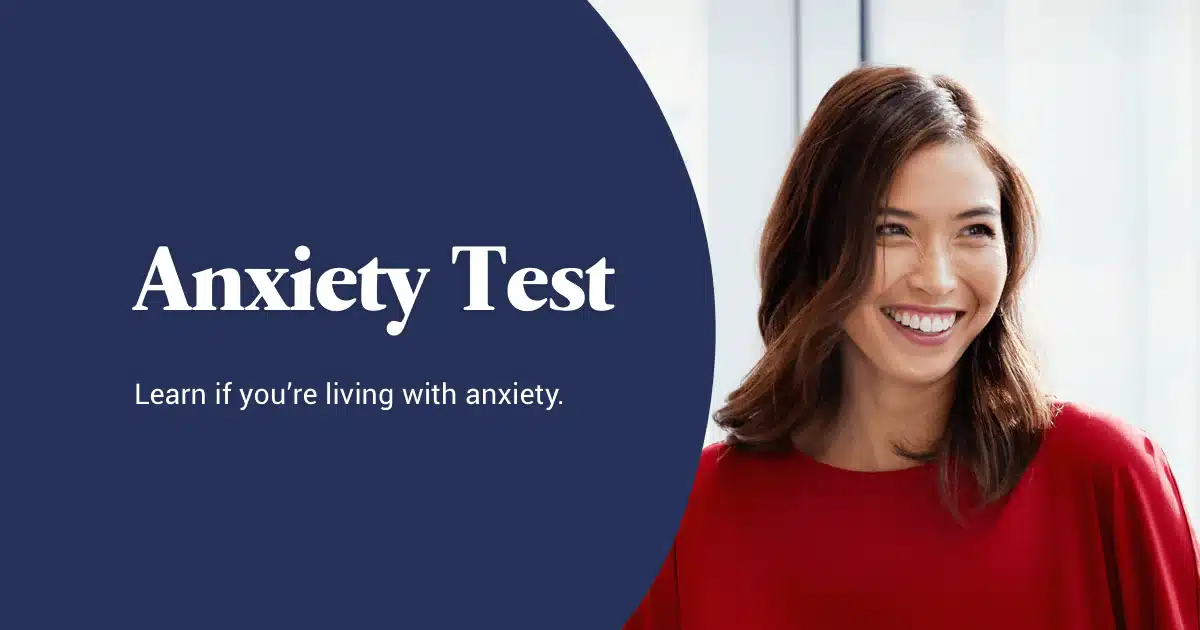Living in today’s fast-paced and demanding world, it’s not uncommon for individuals to experience feelings of anxiety. Sometimes, these moments of stress can be a normal response to certain situations, but for others, anxiety can become overwhelming and interfere with their daily lives. If you find yourself wondering if your anxiety is more than just a passing phase, an anxiety self-test can help identify symptoms and guide you toward seeking the appropriate help.
Understanding Anxiety Disorders
Anxiety disorders encompass a broad range of mental health conditions characterized by excessive worrying, fear, and apprehension. These disorders can manifest in various ways, such as generalized anxiety disorder (GAD), panic disorder, phobias, or social anxiety disorder. An anxiety self-test can serve as an initial screening tool to determine if your symptoms align with those commonly associated with anxiety disorders.
Taking an Anxiety Self-test
Modern technology has made accessing resources and self-assessment tools easier than ever. Numerous websites offer online quizzes or questionnaires designed to help individuals evaluate their own anxiety levels. While these self-tests should not be viewed as a definitive diagnosis tool, they do provide valuable insights into your mental well-being.
When engaging in an anxiety self-test:
- Be honest with yourself: Answer each question as truthfully as possible. Honesty is crucial for accurate results.
- Reflect on your recent experiences: Consider how you have felt within the past six months rather than basing your answers solely on current circumstances.
- Don’t analyze too much: Trust your initial instincts when responding to the questions. Overthinking may skew the accuracy of the test.
Analyzing the Results
Interpreting the results of an anxiety self-test requires objectivity and caution. It’s important to remember that these assessments are not meant to replace professional medical advice or diagnose any condition definitively.
If the test indicates elevated levels of anxiety:
- Take note of the specific symptoms: Assess which symptoms align with your experiences. Symptoms can range from physical sensations, such as a racing heart or difficulty breathing, to cognitive and emotional manifestations, like constant worrying or feeling on edge.
- Consider seeking professional help: Reach out to a mental health professional who can provide an accurate diagnosis and guide you toward appropriate treatment options.
Regardless of the self-test outcome, seeking support from licensed therapists or counselors can offer invaluable assistance to those who are struggling with their mental well-being.
Reaching Out for Help
Understandably, reaching out for help might be uncomfortable or difficult, but it is a crucial step toward managing anxiety effectively. When searching for suitable mental health professionals:
- Research different therapy approaches: Explore various therapy techniques like cognitive-behavioral therapy (CBT), acceptance and commitment therapy (ACT), and mindfulness-based therapies.
- Seek recommendations: Ask trusted friends, family members, or healthcare providers if they know of any qualified professionals in your area.
- Utilize online directories: Online directories specifically dedicated to mental health practitioners make it easier than ever to find licensed professionals in your locality.
- Check insurance coverage: If you have insurance, ensure that the therapists you consider are covered under your policy.
Remember that seeking support is not a sign of weakness; rather, it shows strength and resilience in taking charge of your own well-being.
The Journey Towards Healing
Embarking on the journey towards healing and managing anxiety may require dedication and patience. It’s essential to approach this process holistically by coupling therapeutic interventions with self-care practices:
- Practice relaxation techniques: Deep breathing exercises, progressive muscle relaxation, meditation, or yoga can all help reduce anxiety symptoms.
- Incorporate regular physical activity: Engaging in regular exercise not only keeps your body fit but also benefits your mental well-being by releasing endorphins – natural mood enhancers.
- Prioritize self-care: Engage in activities that bring joy and relaxation to your life. Take breaks, engage in hobbies, spend time with loved ones, or indulge in creative pursuits.
- Build a support system: Surround yourself with understanding and empathetic individuals who can provide emotional support when needed.
Remember, anxiety is manageable, and support is available.
Conclusion
Recognizing anxiety symptoms and seeking help can be the first vital steps toward managing this condition effectively. Anxiety self-tests provide useful insights into individual experiences, helping to identify potential issues. However, remember that self-assessment tools should never replace professional medical advice or diagnoses. Stay proactive in pursuing mental well-being by reaching out to qualified specialists who can guide you through tailored treatment options. With the right support and effective coping strategies, it’s possible to regain control over your life and find balance amidst the challenges of anxiety.


